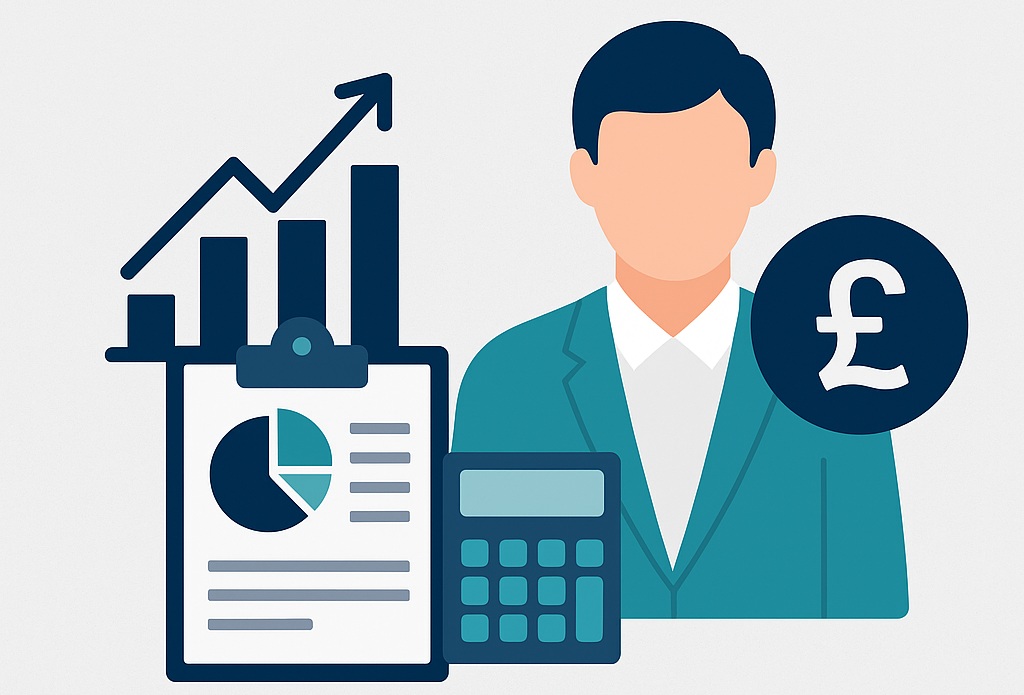How can I do my own bookkeeping?
The term Bookkeeping is used quite broadly because many Bookkeepers cover a broad range of tasks. We’ve narrowed the term down to a few core roles that Bookkeepers usually perform. You should ensure you’re doing these if you’re brave enough to do it yourself. However always remember that using a qualified and experienced bookkeeper is the best route and will stop things falling though the cracks. It will save you a headache later on!
How should I set up my bookkeeping?
We recommend using two different pieces of accounting software to undertake your bookkeeping, XERO and Receipt Bank. We discuss how these are used further below. As partners with both providers, Venn Accounts receive sizeable discounts on either accounting software, which can pass on to our clients. Please contact us directly if you would like to take advantage of this offer.
How do I reconcile my Bank Account?
After you have signed up with XERO and Receipt Bank, to get things working properly you need to import your bank feeds into XERO. This link about Bank Feeds explains how to do this. To view your bank feed in XERO click Accounting, Bank Accounts and then Select the Reconcile button. This brings up a list of all of the items on your bank statement.
For each item on the bank statement there should be a corresponding Bill or Sales Invoice in XERO. You can see these by clicking Business and then Invoices or Bills to pay. Assuming you are new to this these sections will be blank. To see how to do this follow these links.
Once you have entered each bill and sales invoice into XERO, if you go back to your bank account you’ll notice a green boxes arrive. This is what we call matching or reconciling the items. You need to be careful that the bank row has matched the correct bill or invoice as obviously there is a chance that you have more than one bill for say £10 from different suppliers. If you are happy that the matching is correct click “Ok” and you will see the item disappear.
You are probably now thinking that that all seems very simple. However, I would assume you noticed a couple of things:
- Inputting every bill into XERO can be very time consuming.
- You have recurring bills that it makes no sense to aimlessly upload a bill for every month.
Receipt Bank
We resolve the first issue by using Receipt Bank. With Receipt Bank, you can scan, email, upload, or even post your receipts and invoices and Receipt Bank will create the bill for you. This is a huge time saving. All you then need to do is check that Receipt Bank has processed the item properly.
Bank Rules
If you are confident that recurring bills will always be received in the same way you can resolve item 2 by creating bank rules in XERO. This link explains how to create a bank rule. If you implement a bank rule, you still need to keep your receipt or invoice for the expenditure but you do not need to process it to XERO.
Now here are a couple of things you probably haven’t considered:
- For those bills uploaded, am you able to reclaim the VAT back on the purchase?
- What account should I post this invoice to?
- Is the invoice tax compliant?
Ultimately, points one and two require specialist knowledge and this is why you should consider hiring a bookkeeper or accountant to help you with this. Point three you should be considering the Valid Invoices breakdown published by HMRC.
If you are not VAT registered you obviously don’t need to worry about accounting for the VAT on invoices. However, if you are a startup you should potentially account for it anyway so that you can see how much money you are losing out on from not being registered. Remember, if you are a B2B business you are normally always better off being VAT registered. If you are B2C, there are a variety of other things to consider.
Accounts Payable and Receivable
Just reconciling your bank account isn’t the end of bookkeeping. If you are looking to run a robust process, you should also be checking that all invoices for the period are present in XERO including those that have not been paid.
For sales, everything will be present already if you use XERO to write your sales invoices. However, if you have an online shop perhaps there will be a lot of sales invoices not present in XERO. If this is the case you should consider using platforms that connect to XERO like Shopify to avoid having to upload these manually which is time consuming.
For payables/purchases, you should request statements from your suppliers on a periodic basis to ensure that you have not missed any correspondence from them. Your suppliers statement will normally include a list of all outstanding invoices against your company. You simply need to cross reference this to the “Awaiting Payment” section of XERO. Undertaking this process will help you ensure you can properly forecast how much you need to pay and spot any duplicate bills in XERO.
Bank Statement Reconciliation
Although you have set up the XERO bank feed, there is a chance that the automated feed missed a bank row or even duplicate rows. We recommend that you check the amount that the XERO bank feed is reporting in comparison to a physical bank statement. The best way to do this is to open the bank feed in XERO and refer to the balance column, comparing this to a physical statement. Do not depend on the XERO Reconciliation Report as it uses the information from the Bank feed rather than the actual balance.
When you have a difference between the two it can be very difficult to work out what items/rows have been duplicated or are missing. If you are a whizz with excel you can download the XERO bank statement and perhaps compare this to a csv version of your bank statement. Otherwise your only other option is to compare each bank row in turn.
Accruals and Prepayments
If you are looking to produce accurate financial statements whether it be for your Annual Accounts or Management Accounts, you should be entering accruals and prepayment journals into XERO.
Accruals take into account costs that have been incurred but the supplier has not yet sent their invoice. As an example, you might have committed to pay a subcontractor quarterly £3,000 but do not receive their invoice until after the quarter end. To ensure your P&L is reported correctly on a monthly basis you should input a journal to represent the £1,000 monthly cost.
On the flip side, you might have paid for something in advance that is displaying all of the expenditure in one month but really the cost should be split over 12 for reporting purposes. As an example, you pay a marketing company £6,000 for a years worth of service. In month one, you should report £500 of marketing expenses and £5,500 in your prepayments account.
Journals can get messy if you aren’t used to doing them and as such we don’t recommend you input them unless you are a Bookkeeper or Accountant.
Can I do my own Bookkeeping?
Our honest opinion is that you should hire a professional like a bookkeeper or a small business accountant to help you with your Bookkeeping. Bookkeeping forms the basis for so much of your company’s reporting, it really isn’t worth getting wrong. In addition to the benefit of a professional’s accuracy, you can outsource an incredibly boring role and focus on something more instrumental to your business.
When you start your own business, it can be a steep learning curve, involving you doing lots of things yourself that you wouldn’t have done before.
But a crucial lesson to learn is when it makes sense to get expert help, advice and support. DIY accounting involves a lot of risk and mistakes can often be costly if you get it wrong.
Will you taking on the burden of all your own accounting help and potentially hinder your business development? Sometimes, it’s best to trust an expert and leave the hard work to them.
Here at Venn Accounts, we build strong partnerships with our small business clients, and we can become your long-term strategic partners, providing you with the professional, cloud-based accounting support you need.
Find out more about our bookkeeping services for small businesses, or alternatively, give us a call on 020 8088 2590, email enquiries@vennaccounts.com or fill in our contact form, and we’ll be in touch as soon as possible.





